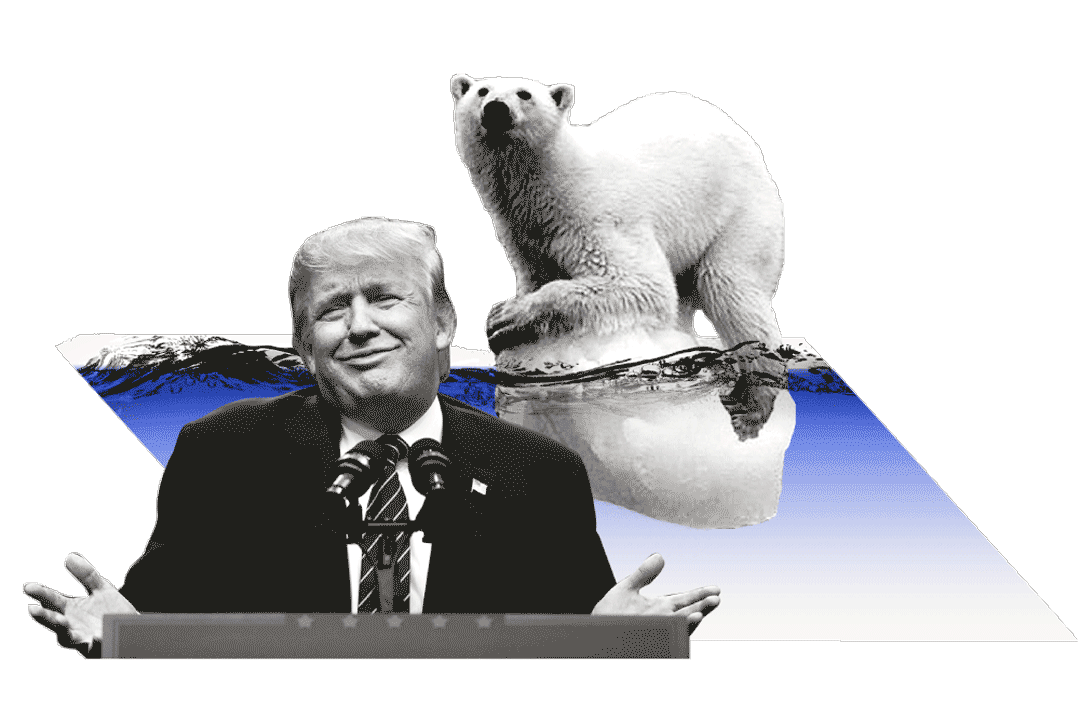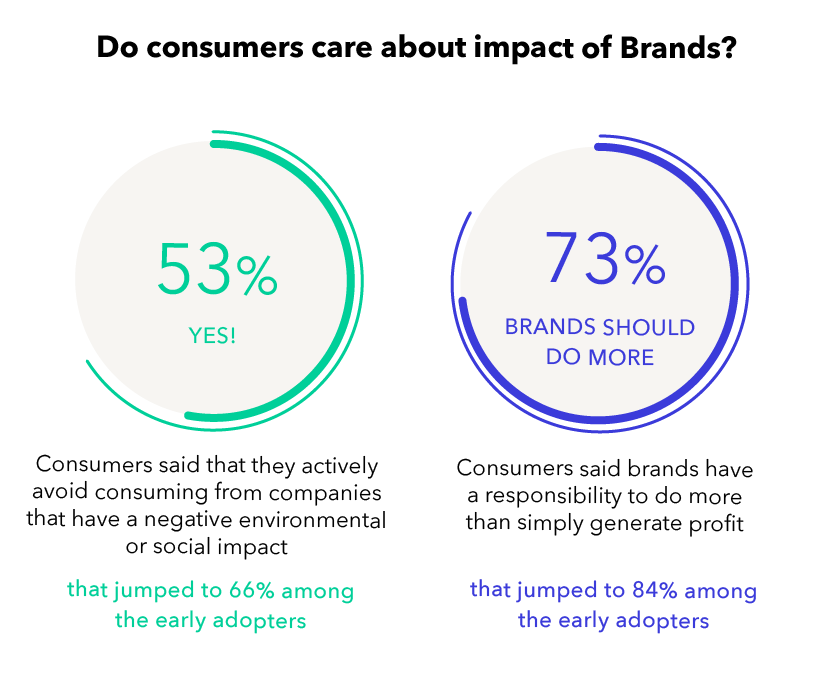Sure, there are millions around the world who simply want more, faster, cheaper, bigger, tastier, shinier. But the truth is that long-term direction of travel is on the side of brands that have a positive impact on the planet, society and individuals. Here’s why.
Our Divided Selves
Sure, it’s not all good news when it comes to the pursuit of a sustainable future. A smattering of the (many) thunderclouds:
– The last quarter of 2016 saw McDonald’s achieve its best annual global comparable sales growth since 2011. Off the back of all day breakfasts ;)
– The China Association of Automobile Manufacturers says that in 2016 sales of Chinese SUVs jumped by 58 percent to 5.27 million. SUVs were the fastest-growing model within the passenger car category for the third year in a row.
– US voters have elected a president who once claimed climate change is a hoax. Meanwhile NASA data shows 2016 was the hottest year on record globally since modern record-keeping began in 1880. Before 2016, the record was held by…2015. And before 2015 it was…2014. Yep.

But there are rays of sunshine too:
– In 2016 McDonald’s removed artificial preservatives from several menu items, and high-fructose corn syrup from buns. It committed to stop serving chicken fed with medically important antibiotics.
– Tesla’s sales in China tripled to more than USD 1 billion in 2016. The 352,000 electric cars sold in China in 2016 represent 46% of sales worldwide.
– A recent poll shows that 61% of Americans oppose Trump’s plans to remove regulations that combat climate change (Quinnipiac University, February 2017).
The Guilt Spiral
So, what are you supposed to make of all these conflicting signals? As a brand, which side do you take? Here’s why we’re confident that positive impact is still the future.
Rising numbers of consumers are trapped in a toxic guilt-spiral when it comes to the negative impacts their consumption has on the planet, other people, or themselves.
And yes, that spiral is being fueled by rising TRANSPARENCY, which makes it ever-harder to remain ignorant of those impacts. Now, those consumers are looking to brands to make meaningful changes to assuage their guilt.
One glimpse of that? In a recent global survey 53% of consumers said that they actively avoid consuming from companies that have a negative environmental or social impact. And that jumped to 66% among specially-identified leading-edge consumers who tend to adopt behaviours before the mainstream. Furthermore, 73% of consumers said brands have a responsibility to do more than simply generate profit, and that went up to 84% among the leading-edge consumers (Havas, February 2016).

Subscribe
Never miss a TrendWatching Quarterly Briefing!
Clean Slate Brands
Meanwhile, a new generation of startups have great environmental and social values baked in from the start. And they’re pointing the way towards a new, more ethical consumerism. When an insurgent brand such as footwear manufacturer Veja makes a line of trainers exclusively out plastic bottles, that helps rewire consumer expectations on around positive impact. Remember, consumers only have to see that story to have their expectations changed – they don’t have to buy anything. Adidas recently came out with a line of trainers made from recycled ocean plastic, and have now promised to manufacture 1 million pairs in 2017, and eventually eliminate non-recycled plastic from their supply chain.
So, one question:
Can you imagine a 2017-launched insurgent brand in automotive, retail, food and beverage, fashion, [insert major industry here], that didn’t claim to be in some way superior to the incumbents when it comes to the environment, society, ethics, personal health, or some other impact metric?
The future for big, legacy, sinful brands that don’t want to be killed by an clean slate startup? They need to find the epic shared challenge they are uniquely positioned to tackle, and take action. Unilever are reaching hundreds of millions in developing countries with its Lifebuoy handwashing campaigns, targeting the 800,000 children under five each year who die from diarrhoea according the WHO. Even Silicon Valley’s elite are trialing solutions to deep socio-political problems, check out YCombinator’s experiment with universal basic income in Oakland.
Think your brand can’t afford to do anything on this? Just don’t say we (and others!) didn’t flag the long-term trend!
Innovation Examples
Featuring Patagonia, Lotte Group, DB Breweries and more…
Take Action
For businesses that are used to pursuing only one positive impact (for their shareholders), the concept of doing good for the planet, society and your customers is a challenging one, we’ll admit.
So rephrase it in terms even the sharpest pinstripe-wearing vampire-sucking squid can understand: it’s just not good business to kill/screw over/rip-off your customers. And, given the world is only getting more transparent (see truth #1), the days of hoping people wouldn’t notice are long gone.
As we said above, if you think that you can’t (what that really means is you don’t think you can afford to) create a positive impact, then don’t be surprised if and when someone in your market does. And when they do, your customers will switch to the healthier, more sustainable, less cruel, lower-impact version in a flash. You have been warned ;)
Related
Truth #1
The Future is still Transparency
Post-truth doesn’t change the global, rapid, epic onward march towards a future of ever more reliable, useful, instantly accessible information. The future …
Truth #2
The Future is still Aspiration
The drive to get ahead. To do better – than the rest, than yourself. To become a better person, and make sure everyone sees it. That impulse is as old as hu…
Truth #4
The Future is still Tolerance
The impulse to accept, empathise with and embrace others – to recognise their shared humanity – is a part of our nature. That’s why we live in a rainbow…
Truth #5
The Future is still Empowerment
We’re in the middle of an epic power shift away from institutions – think government, social organizations, big business and more – and towards the indi…







